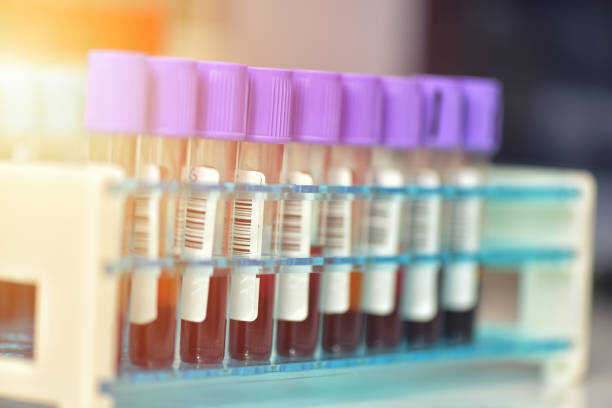Email format error
Email cannot be empty
Email already exists
6-20 characters(letters plus numbers only)
The password is inconsistent
Email format error
Email cannot be empty
Email does not exist
6-20 characters(letters plus numbers only)
The password is inconsistent

Plastic Injection Moulding Machine Manufacturer
Latest Blog

Modular Blood Collection Tube OEM: Pricing Strategies and Considerations
1. Introduction to Medical OEM
In the intricate landscape of healthcare equipment, medical OEMs (original equipment manufacturers) emerge as vital players. These entities specialize in crafting medical devices or products tailored to the specifications of other businesses. Specifically, within the realm of blood diagnostics and collection, modular blood collection tube OEMs stand out. These specialized firms dedicate themselves to producing customized tubes, catering to the nuanced requirements of diverse medical institutions, and ensuring accurate and reliable sample collection.
2. Design Description: The Rise of Modular Approaches
The emphasis on modular design within the blood collection tube OEM sector is palpable. This design philosophy champions flexibility and customization, enabling enterprises to craft products aligned with precise client specifications. Unlike rigid, one-size-fits-all models, modular designs empower businesses to adapt swiftly to evolving market dynamics and clinical demands. The inherent advantages of such bespoke designs extend beyond mere customization; they drive efficiency, optimize production workflows, and elevate product quality.
Moreover, the adaptability offered by modular designs ensures that OEMs can integrate technological advancements seamlessly. Whether it's incorporating innovative materials, enhancing sample preservation mechanisms, or integrating smart technologies for real-time tracking, modular approaches offer the agility required to stay ahead in a competitive marketplace.
3. Analysis of Standardization: Upholding Quality and Safety
For modular blood collection tube OEMs, quality and safety are non-negotiable facets. Achieving excellence in these domains necessitates rigorous adherence to established standards and protocols. Leading organizations in this sector prioritize compliance with globally recognized frameworks, such as the ISO 9001 Quality Management System and stringent FDA guidelines.
The commitment to quality transcends mere regulatory compliance; it embodies a holistic approach encompassing design integrity, material selection, manufacturing processes, and post-production evaluations. By implementing comprehensive quality control mechanisms, including rigorous testing protocols, quality assurance audits, and continuous improvement initiatives, OEMs can instill confidence among healthcare professionals and patients alike.

4. Materials: The Building Blocks of Excellence
The selection of materials stands as a cornerstone of the manufacturing prowess of modular blood collection tube OEMs. Optimal material choices, such as medical-grade plastics, silicone, and specialized glass variants, underpin the reliability, durability, and performance of the end product. These materials exhibit exemplary biocompatibility profiles, ensuring minimal interference with blood samples and preserving their integrity during storage and transport.
Furthermore, the integration of additives like advanced anticoagulants and stabilizers augments tube functionality. These specialized additives mitigate clotting risks, maintain sample stability over extended durations, and facilitate precise analytical outcomes during diagnostic evaluations. As research advances, OEMs continually explore innovative materials and formulations, striving to enhance product efficacy, user experience, and overall patient care.
5. Market Dynamics: Navigating Trends and Challenges
The modular blood collection tube OEM landscape is characterized by dynamic market forces necessitating agility, innovation, and strategic foresight. A confluence of factors, including demographic shifts towards an aging population, the escalating incidence of chronic ailments, and technological innovations, shapes market dynamics.
Furthermore, evolving clinical paradigms, such as personalized medicine and genomic testing, necessitate specialized blood collection solutions tailored to distinct diagnostic requirements. In this context, OEMs must align their product development strategies with emerging trends, leveraging data analytics, market research insights, and collaborative partnerships with healthcare stakeholders.
As competition intensifies, differentiation emerges as a critical success factor. OEMs must cultivate unique value propositions, whether through patented technologies, superior product performance, or unparalleled customer support. By fostering a culture of innovation, fostering cross-disciplinary collaborations, and prioritizing customer-centricity, modular blood collection tube OEMs can navigate market complexities, drive growth, and shape the future of healthcare diagnostics.
Conclusion
In summation, the pricing strategies and considerations for modular blood collection tube OEMs encompass multifaceted dimensions, ranging from innovative design paradigms and stringent quality standards to material science advancements and market dynamics. By embracing a holistic approach, integrating diverse domains of expertise, and fostering a culture of continuous improvement and innovation, modular blood collection tube OEMs are poised to redefine standards, elevate patient care, and drive transformative advancements in the ever-evolving landscape of healthcare diagnostics and treatments.

